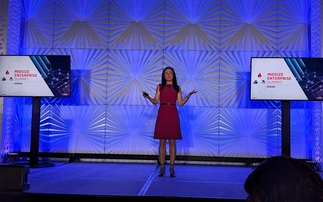End user organisations remain sceptical about the business benefits of grid technology, according to research
The vast majority of firms have no plans to try grid computing, perceiving the technology as too costly, complicated or insecure, according to research published today by systems integrator Morse. ...
To continue reading this article...
Join Computing
- Unlimited access to real-time news, analysis and opinion from the technology industry
- Receive important and breaking news in our daily newsletter
- Be the first to hear about our events and awards programmes
- Join live member only interviews with IT leaders at the ‘IT Lounge’; your chance to ask your burning tech questions and have them answered
- Access to the Computing Delta hub providing market intelligence and research
- Receive our members-only newsletter with exclusive opinion pieces from senior IT Leaders

















